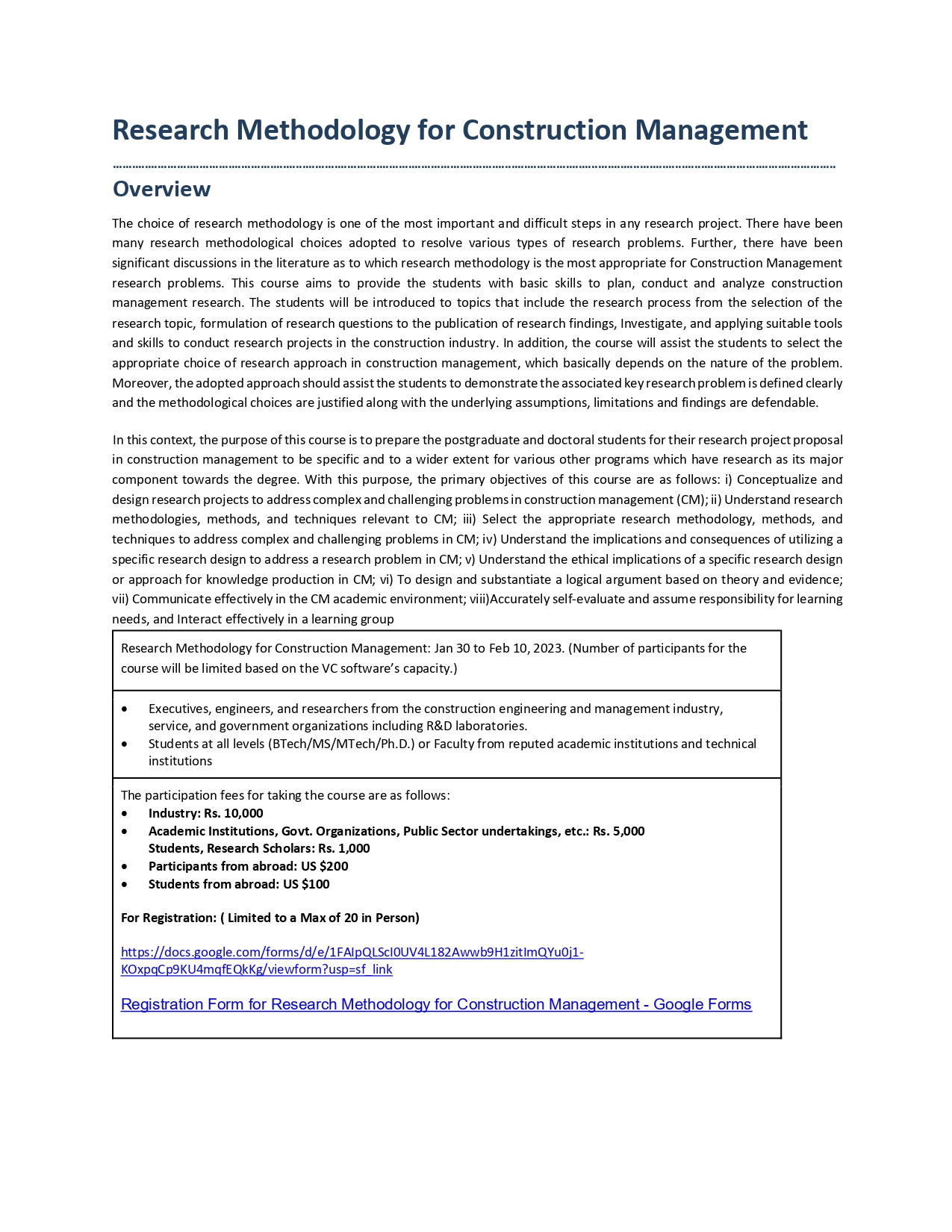
GIAN Course on Research Methodology for Construction Management
The choice of research methodology is one of the most important and difficult steps in any research project. There have been many research methodological choices adopted to resolve various types of research problems. Further, there have been significant discussions in the literature as to which research methodology is the most appropriate for Construction Management research problems. This course aims to provide the students with basic skills to plan, conduct and analyze construction management research. The students will be introduced to topics that include the research process from the selection of the research topic, formulation of research questions to the publication of research findings, Investigate, and applying suitable tools and skills to conduct research projects in the construction industry. In addition, the course will assist the students to select the appropriate choice of research approach in construction management, which basically depends on the nature of the problem. Moreover, the adopted approach should assist the students to demonstrate the associated key research problem is defined clearly and the methodological choices are justified along with the underlying assumptions, limitations and findings are defendable.
In this context, the purpose of this course is to prepare the postgraduate and doctoral students for their research project proposal in construction management to be specific and to a wider extent for various other programs which have research as its major component towards the degree. With this purpose, the primary objectives of this course are as follows: i) Conceptualize and design research projects to address complex and challenging problems in construction management (CM); ii) Understand research methodologies, methods, and techniques relevant to CM; iii) Select the appropriate research methodology, methods, and techniques to address complex and challenging problems in CM; iv) Understand the implications and consequences of utilizing a specific research design to address a research problem in CM; v) Understand the ethical implications of a specific research design or approach for knowledge production in CM; vi) To design and substantiate a logical argument based on theory and evidence; vii) Communicate effectively in the CM academic environment; viii)Accurately self-evaluate and assume responsibility for learning needs, and Interact effectively in a learning group

